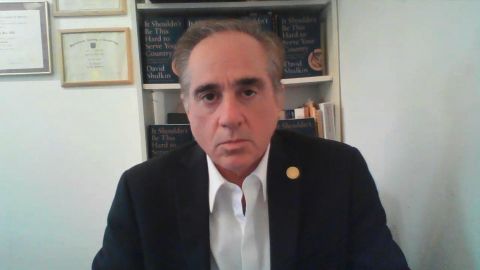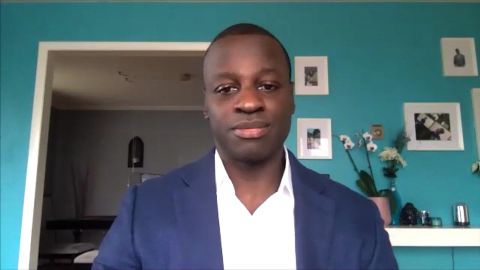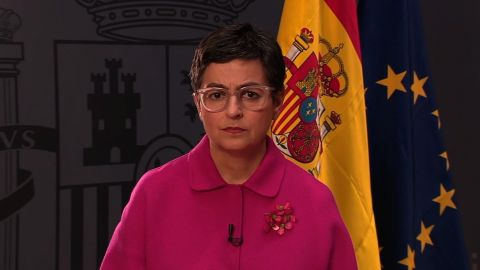Read Transcript EXPAND
CHRISTIANE AMANPOUR: And, Foreign Minister, one out of 10 confirmed cases of the virus are among medical workers in your country. That’s the highest in Spain. I mean, what more do you have to do to protect these front-line warriors?
ARANCHA GONZALEZ LAYA, SPANISH FOREIGN MINISTER: So, we are protecting the front-line warriors, we are protecting them with equipment, we are protecting them with protocols. But it is in a way inevitable that a number of them get infected from treating the patient. Let’s not forget we’re treating massive numbers, especially in one region. More than 50 percent of the cases in Spain are in Madrid. More than 75 percent of those deceased are over 80 years of age. We have got a concentration. It is terrible to see. It is human suffering. But we think, again, that with the measures we have taken, we are on course to beat the coronavirus and to flatten the curve. It is a huge effort. Every country, in a way, is learning about how to beat the virus by doing it. There is no magic recipe. Every country is having to, in a way, build on what the predecessors have done and struggled to find the right way to confront it. Some took it lightly, in a way, and said, OK, let’s ensure there is global — some sort of herd immunity, but — by making sure people get a lot of contact. They also have had to change track. Some started with lighter confinement measures, they are having to take stronger measures. We are all in a trial — in a test and trial effort to beat the virus. The most important thing, in my view, is to be determined and to follow very carefully all the recommendations that we are getting from the scientists, whether they are from the World Health Organization, the European scientists or our own ones in Spain, making sure that the decisions we take for Spain are grounded in the science that we get from them.
AMANPOUR: And yet, that health worker told us that they have to wear garbage bags, Foreign Minister, to protect themselves while trying to protect and treat people. And this is important because you have this week, in fact yesterday, reached out to NATO and asked for help. NATO, NATO, the military alliance, you’ve asked for help, requesting 1.5 million surgical masks, half a million rapid tests, nearly half a million respirators, and more than 500 mechanic ventilators. Can — I mean, what is NATO? NATO is all your neighbors dealing with the same issues. What do you expect to get from them?
LAYA: Well, what we are doing is purchasing material, and we have purchased $500 million just in the last couple of days’ worth of masks, worth of glasses, worth of testing, rapid testing kits,
About This Episode EXPAND
Christiane Amanpour speaks with the Spanish Foreign Minister about how her country is handling COVID-19; and Dr. David Shulkin about what the Department of Veterans Affairs in the U.S. can do to help in times of crisis. Hari Sreenivasan speaks with Lawrence Bartley, director of the Marhsall Project’s “News Inside,” about how the crisis is affecting the incarcerated population.
LEARN MORE


